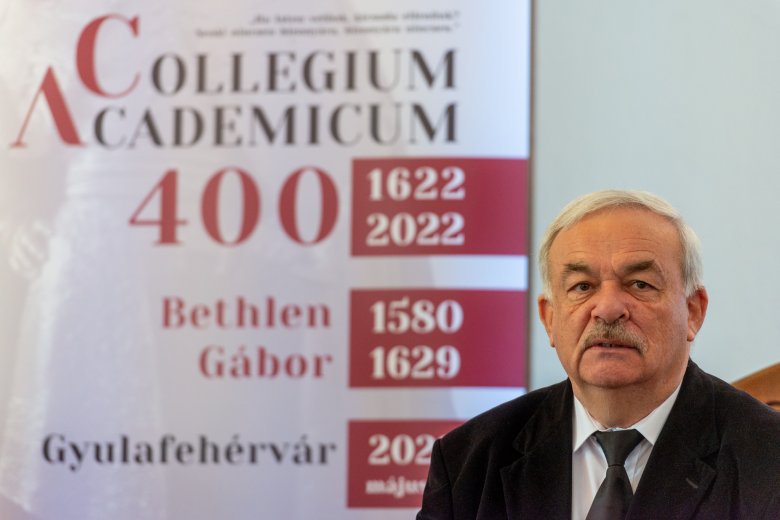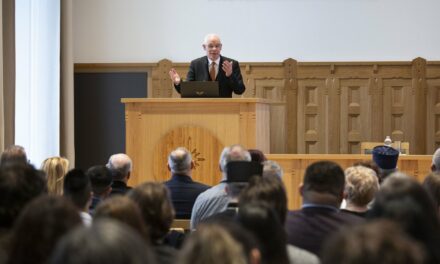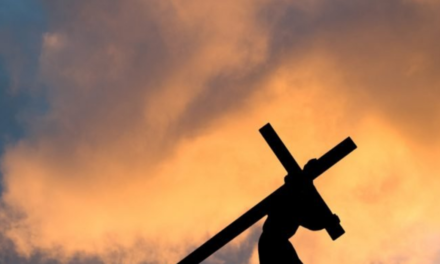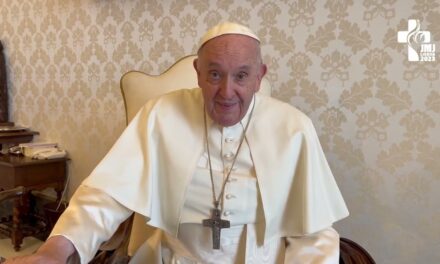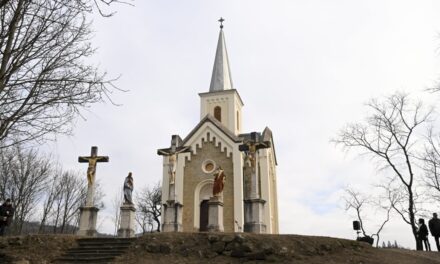On May 21, on the occasion of the Day of Hungarian Reformed Unity, the Reformed bishops, deans, parish and diocesan guardians of the Carpathian basin will meet in Gyulafehérvár, announced Béla Kató, bishop of the Transylvanian Reformed Church District (EREK), at his press conference in Gyulafehérvár on Tuesday.
He said: Since 2009, the Day of Hungarian Reformed Unity has been celebrated - usually on the last weekend of May. However, in the last two years, the large-scale event was not organized due to the coronavirus epidemic. He added: they chose Gyulafehérvár as the location for the celebration because they also want to remember the Collegium Academicum, founded here 400 years ago by the Transylvanian prince Gábor Bethlen. The college was later moved to Nagyenyed by Prince Mihály Apafi.
As part of the series of events, the ten Reformed bishops of the Carpathian Basin rededicate a renovated Reformed church in South Transylvania, the General Convention meets in Gyulafehérvár, a full-length public statue of Gábor Bethlen is inaugurated near the former college, and an open-air celebratory service is held in the castle, at which the the Lord's Supper is also served to the participants.
Béla Kató said: fortunate circumstances helped the inauguration of the Gábor Bethlen statue in Gyulafehérvár. The city of Marosvásárhely selected the prince's statue - which has since been inaugurated - based on a tender. The sculpture design of Nagyvárad artist Árpád Deák was prepared for the competition in Marosvásárhely, but did not win there. This was ordered by the church district in Gyulafehérvár. Earlier, Hungarian newspapers in Transylvania reported that the city's local government supported the installation of the statue in the public square.
Szilárd Tussay indicated that the Hungarian Reformed Unity Day will not only be a one-day event this year, nor will it be held only in Gyulafehérvár. It is accompanied by a series of exhibitions and conferences. The series of events begins on May 18 with a church history conference to be held in Nagyenyed.
Bishop Gudor Kund Botond of Gyulafehérvár said: as part of the series of events, an exhibition on 400 years of educational development in Transylvania is being organized together with the Roman Catholic Church. Together with the Gyulafehérvár museum, they are organizing a book exhibition of the textbooks used in the college and books written by the college's teachers.
He added: Gábor Bethlen's entry will also be visible in one of the books. The exhibition at which the László Teleki Foundation in Budapest presents the renovation of valuable monuments will also open in Gyulafehérvár. The deacon said: with the scattered event, I want to send a message that every Hungarian person matters, even in the smallest settlement, and at the same time I want to strengthen interethnic and ecumenical relations.4
Béla Kató said: more than ten churches in the southern Transylvanian region have been renovated in the past period, but ten will be rededicated because ten Reformed bishops will be present at the series of events. These consecrations are held at the same time with the participation of a bishop. He added: there will be a renewed church that is home to a living Reformed community, but also one around which the Reformed community has died out.
"A community is formed on such occasions, which strengthens those who belong together in their faith and sense of identity," said the bishop.
When asked by a journalist whether it is worth renovating churches that do not have a congregation, he stated: you can also commemorate by erecting headstones, but if a medieval church is standing there, there is no need for more eloquent evidence of the culture created here. He also noted that the possibility of revival should never be ruled out. Due to the built highways, Southern Transylvania is a rapidly developing region of Romania, and it may happen that employee mobility brings Reformed Hungarians here, who will one day fill the renovated churches with life. "The stones cry out, they affect our conscience," said the bishop.
MTI
Cover photo: Béla Kató, bishop of the Transylvanian Reformed Church District • Photo: Református.ro/Gábor Kiss

